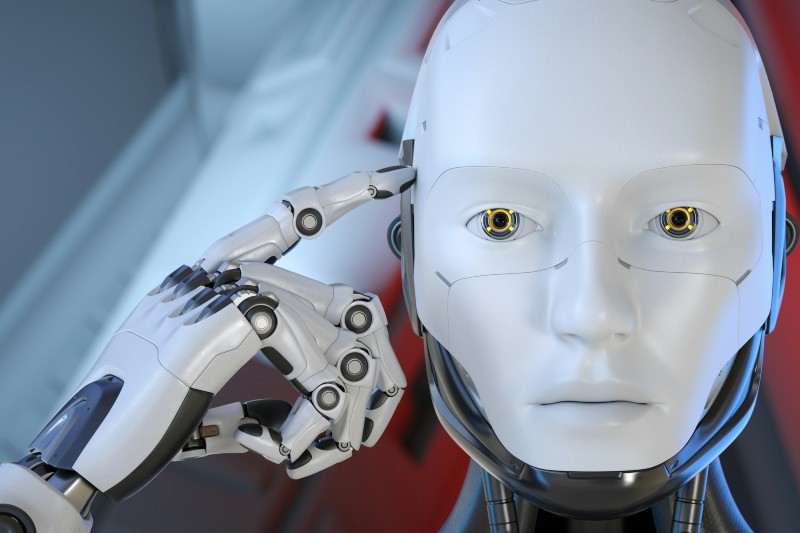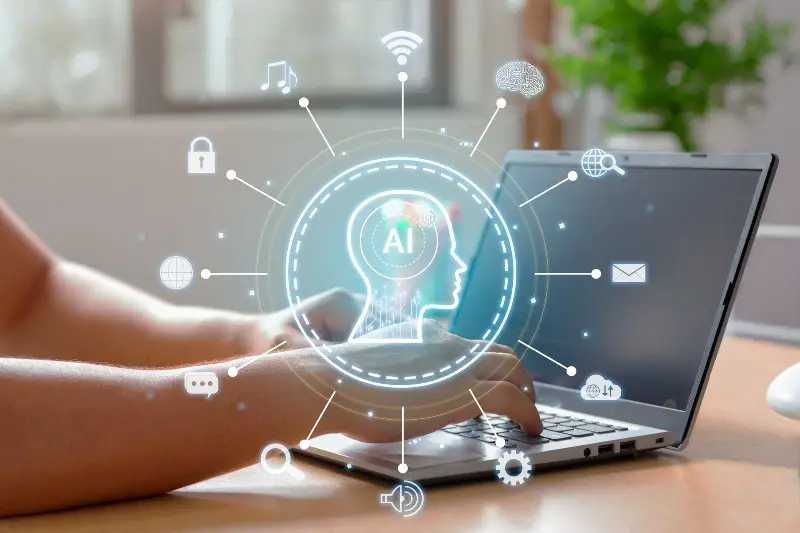Welcome to the fascinating world of Black Box AI, where technology performs complex tasks behind a veil of mystery. Black Box AI is a type of artificial intelligence that works like a secret formula – we can see its results, but how it gets to those results often remains hidden. This intriguing aspect of AI plays a significant role across various sectors, making it a topic of interest and importance.
In this blog, we’re going to explore the impact and implications of Black Box AI in different fields such as manufacturing, education, and robotics. We’ll also delve into the critical aspect of ethical AI. Whether you’re a student, educator, professional, or simply curious about AI, this post will provide you with a clear understanding of Black Box AI. Let’s dive in and demystify this advanced technology!
Manufacturing
In the manufacturing industry, Black Box AI is like having a magic wand that streamlines processes and boosts efficiency. It’s used to control robots on assembly lines, predict machine maintenance needs, and optimize production schedules. For manufacturers, this means less downtime, reduced costs, and higher-quality products.
However, the ‘black box’ nature of this AI can pose challenges. When machines make decisions or identify issues, it’s not always clear how they arrived at these conclusions. This lack of transparency can be a hurdle, especially when there’s a need to troubleshoot or improve systems. Understanding the capabilities and limitations of Black Box AI is crucial for those in the manufacturing sector.
Students and Educators
For students and educators, Black Box AI opens up a world of opportunities and challenges. It offers a chance to learn about cutting-edge technology and its applications. In classrooms, AI can provide personalized learning experiences, helping students learn at their own pace and style.
Yet, the complexity of Black Box AI can make it a tough subject to grasp. Educators need to find ways to simplify these concepts for students, ensuring that the future generation understands the technology that’s shaping their world. It’s also important for students to learn about the ethical considerations of AI, preparing them to use this technology responsibly.
Robotics
Robotics is one area where Black Box AI really shines. Robots equipped with AI can perform tasks ranging from simple household chores to complex surgeries. This AI allows robots to learn from their experiences, adapt to new environments, and make decisions autonomously.
However, with great power comes great responsibility. The decisions made by AI-powered robots aren’t always transparent, raising concerns about safety and reliability. For those in robotics, it’s crucial to work towards making the AI’s decision-making process more understandable and controllable, ensuring that robots can be trusted to work alongside humans.
Myths vs. Facts
Myth: Black Box AI is Always Right
Fact: Black Box AI, like any technology, is prone to errors. Its effectiveness depends on the data it’s trained on and how well its algorithms are designed.
Myth: Black Box AI is Too Complicated to Understand
Fact: While Black Box AI can be complex, researchers are developing methods to make its workings more understandable and accessible.
Myth: Black Box AI Operates Independently of Humans
Fact: Despite its advanced capabilities, Black Box AI still relies on human input for its initial programming, data feeding, and continuous improvement.
FAQ
What Is Black Box AI? Black Box AI is a type of artificial intelligence where the internal workings are not visible or easily understood. It’s like a chef who creates a great dish but keeps the recipe a secret.
Why Is Black Box AI Important in Manufacturing? Black Box AI is crucial in manufacturing for automating processes, improving efficiency, and enhancing product quality, thereby helping factories stay competitive.
How Can Students and Educators Benefit from Learning About Black Box AI? Learning about Black Box AI prepares students for a technology-driven future and equips educators with the knowledge to teach about this evolving field effectively.
What Role Does Black Box AI Play in Robotics? In robotics, Black Box AI enables robots to learn, adapt, and make decisions, leading to more advanced and autonomous robotic applications.
What Are the Ethical Considerations of Black Box AI? Ethical considerations of Black Box AI include issues of transparency, accountability, and ensuring that AI-driven decisions do not perpetuate biases or harm.
Google Snippets
Black Box AI: “Black Box AI refers to artificial intelligence systems where the decision-making process is not transparent, often making it difficult to understand how AI reaches conclusions.”
AI in Manufacturing: “AI technology in manufacturing is transforming the industry by improving process efficiency, product quality, and reducing operational costs.”
AI in Education: “Artificial intelligence in education is enhancing personalized learning, providing insights into student performance, and revolutionizing teaching methods.”
Black Box AI Meaning
Tech Journal Definition: “Black Box AI is an AI system where the internal decision-making algorithms are not visible or easily decipherable to the user.”
AI Expert’s Explanation: “Black Box AI involves complex algorithms where the exact mechanism of how it processes data and makes decisions is not transparent.”
Simplified Version: “Black Box AI is like a smart machine that solves problems or makes decisions without showing us how it does it.”
Did You Know?
- The term “Black Box” originally comes from aviation, where black boxes record flight data in a way that’s not immediately accessible.
- Black Box AI can process enormous amounts of data in a fraction of the time it takes humans, but understanding how it makes decisions remains a challenge.
In conclusion, Black Box AI is a groundbreaking technology with significant implications in manufacturing, education, robotics, and ethical considerations. While it offers immense potential for efficiency and innovation, understanding how it works and ensuring its ethical use is crucial. As technology continues to evolve, so will our understanding and application of Black Box AI, paving the way for a future where AI enhances our capabilities and improves our lives.
References
- Thinkful offers insights on how to address the “black box” problem in AI through Explainable AI (XAI) and transparency models. They discuss techniques like Feature Importance Analysis, Local Interpretable Model-agnostic Explanations (LIME), SHapley Additive exPlanations (SHAP), Model Distillation, and Decision Rules, which are designed to make AI models more interpretable and transparent. This is especially important in applications where decisions can have far-reaching consequences, such as healthcare or finance
- Superb AI‘s blog discusses the challenges of the reliability of AI and its adoption into society, given the opaque nature of black box models. The widespread use of AI technologies presents issues related to data bias, lack of transparency, and potential infringement on human rights. The article addresses how Explainable AI is crucial for building AI systems that are not only powerful but also trustworthy and accountable.







